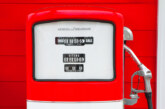CVW hears from Peter Tillotson, Business Development Manager at TyrePal, as he explains why fleet managers should consider TPMS alongside more conventional energy saving methods.
The heavy fleet and industrial vehicle markets are two UK sectors dominated by questions of Corporate Social Responsibility (CSR) and environmental impact. Despite this, it is rare for fleet managers to consider purchasing additional technologies that would improve both, such as tyre pressure monitoring systems (TPMS).
The operation of fleet vehicles has a direct impact on road safety, environmental performance and employee wellbeing. Driving is one of the most dangerous work-related activities that most people do, and vehicles emit a substantial amount of emissions that have a negative effect on the environment. As a result, fleet managers have a responsibility to proactively minimise this impact.
Driver safety
Vehicle breakdowns and crashes have a significant effect on a company’s profits, because of the cost of medical care, legal expenses, property damage and loss of productivity. Last year, the private sector, Government and road safety professionals partnership, RoadSafe, reported that 150 company vehicles in Br itain were involved in road traffic accidents, resulting in 14,000 deaths or serious injuries as well as 550,000 whiplash claims. The grand total for those liable was £2 billion.
itain were involved in road traffic accidents, resulting in 14,000 deaths or serious injuries as well as 550,000 whiplash claims. The grand total for those liable was £2 billion.
Tyre failure is the biggest preventable cause of breakdown in commercial vehicles. Punctures frequently go unnoticed until a breakdown occurs. An early warning from a TPMS means fleet managers can take action before service is disrupted and permanent damage is done.
TPMS give warnings before a blowout or tyre fire has the chance to occur. Blowouts are usually caused by a tyre being overstressed; when heat builds up, the side wall begins to delaminate, making the tyre more likely to burst or catch fire.
Environmental impact
One third of a commercial vehicle’s fuel is used in overcoming tyre rolling resistance, but this figure increases dramatically if tyres are under-inflated. Clearly, this is a serious issue if the problem spans across an entire fleet.
Fossil fuels power the majority of vehicles on UK roads. Many of the environmental problems we face today are a result of fossil fuel dependence, so it’s important to use them as efficiently as possible.
Carbon dioxide is amongst the gases emitted when fossil fuels are burned. It is responsible for trapping heat inside the earth’s atmosphere, causing global warming. The burning of fossil fuels has also been linked to increased levels of atmospheric methane and nitrous oxide.
The reduction of fuel usage and carbon dioxide emissions are important reasons why fleet managers need to ensure tyres are properly inflated.
The policy
Over the last few years, TyrePal has already seen many fleet companies build tyre pressure management into their CSR policy. The easiest way to manage tyre pressure is to use a TPMS in every vehicle.
As well as helping companies comply with their CSR policy, there are other benefits for fleet managers. Systems continue to check vehicles while they are parked, saving the driver time on walk-around checks.
They also reduce breakdowns, as drivers are given a warning if they incur a puncture while driving. This helps drivers to avoid missing delivery slots and improves customer service. It also reduces the amount of hours lost through breakdown.









